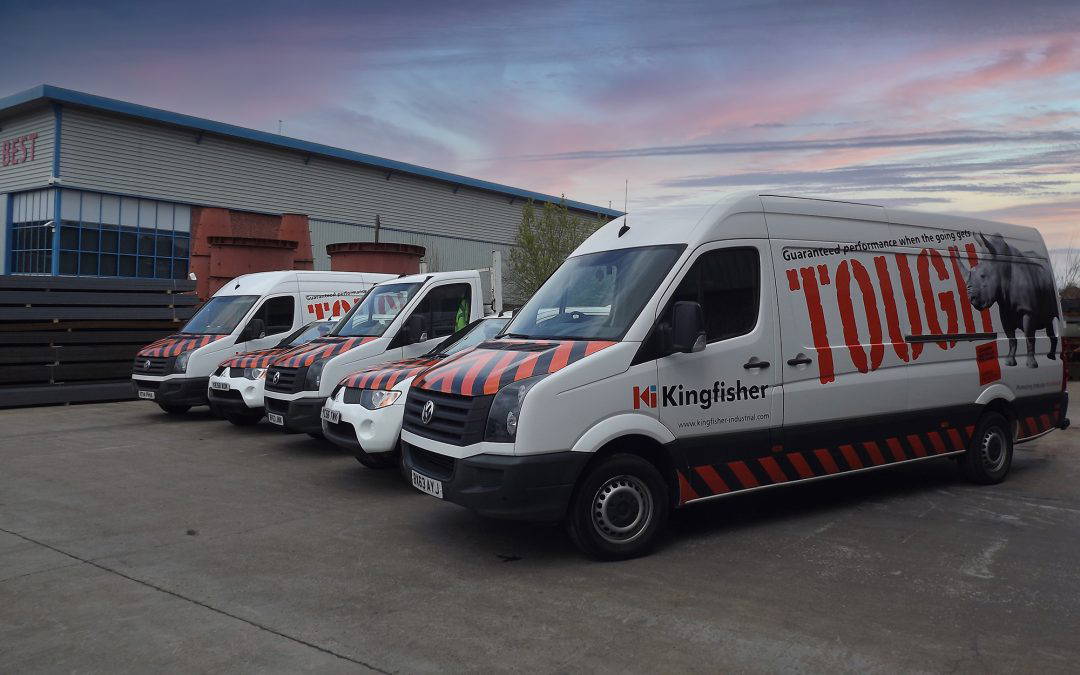With expected growth planned for the construction industry, there will be a requirement for the additional supplies of bricks and mortar. It is, therefore, important for mortar producers to keep their plant running efficiently with minimum interruptions or shutdowns, hence reliable bulk handling systems need to be designed and built as they are integral to such an operation.
Silver Lining Systems at DSM Plant
A major UK supplier of dry mortar experienced constant failures with their pneumatic pipe conveying systems and after constant attempts to sort the problem they eventually approached Kingfisher Industrial to find a solution as although an existing system was used, the pipes were still failing due to excessive wear which leads to product escaping to the atmosphere resulting in plant shutdown to execute repairs and replacement.
FLOW-INDUCED LINING SYSTEMS
During a thorough site inspection, Kingfisher Industrial saw that the existing systems were not providing a sufficiently secure barrier between the pipes’ surface and the highly abrasive material being conveyed to the silo.
As the existing system comprised of mosaic-style ceramic liners, an uneven surface had developed creating voids of differing dimensions between the liners thus creating both excessive wear and material build-up resulting in both pipe degradation and blockages within the pipes feeding to and from the product silos.
As a result of the high velocities and volumes of raw material being conveyed through the pneumatic systems, internal surfaces were suffering from degradation, and engineers were having to factor extra costs into the budget for a product that would incur more expensive but last significantly longer than the existing systems currently utilised.
When Kingfisher’s qualified sales engineers visited the site and identified the root cause of failure, it was proposed by the customer to implement a recommended system on a trial basis. This would enable the dry mortar producer to analyse Kingfisher’s wear-resistant pipework systems against those supplied by other companies. In support of the supply, Kingfisher re-designed the routing of the pipework to ensure the smooth transition of product throughout the system alleviating blockages and areas of pipework that were misaligned by the original supplier and were also contracted to install the new pipes which were a mixture of our K-ALOX and K-BAS lined ceramic components positioned in areas of differing wear rates.
Following the success of both trialed straight pipes and bends, Kingfisher was then awarded the supply and manufacture of the complete pipework system utilised on-site which not only fed the silos but also transferred product between silos, feeders, and mixers.
WEAR DETECTION TO INCREASE PRODUCTION UPTIME
In a further protective measure, the customer’s engineers requested Kingfisher incorporate its AbrAlarm Wear Detection technology on all bends. Kingfisher’s AbrAlarm system comprises a low-voltage electrical indicator that is integrated between the lining system and steel casing. Once severed, it will display a fault signal when the lining has worn through.
Kingfisher Project Manager, Mark Bond commented, “Our AbrAlarm system is a failsafe system designed in house to help eliminate system failures as it alerts on-site plant operators about any pending pipework failures through activation of alerts via their in-house SCADA or PLC operating system. This provides prior knowledge that the thickness of the pipe has depleted and will need replacing in due course.
INTERESTED IN FINDING OUT HOW WE CAN ASSIST YOU WITH ANY ONSITE ISSUES OR PROBLEMS WITH WEAR AND ABRASION? THEN SIMPLY COMPLETE THE FORM BELOW AND ONE OF OUR TECHNICAL EXPERTS WILL GET BACK TO YOU.

